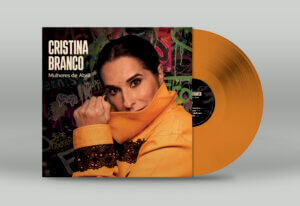
29 Oct Interview: Bluecomotive Talks with… Cristina Branco
«Making music is increasingly an act of stubbornness»
It is necessary to look to the past in order to stir the present. It is vital to bring into this moment something powerful enough to offer people a path to freedom against censorship. Thus was born the album “Mulheres de Abril” — Cristina Branco’s ode to the revolutionary women sung and written about by José Afonso. Already available in stores in an exclusive CD and vinyl edition, and from November 28 also on digital platforms, the album will be presented live on November 29 at the Auditório Municipal Carlos do Carmo (Lagoa) and on December 17 at Casa da Música (Porto).
What is the origin of the new album “Mulheres de Abril”?
Building on the opportunity to continue this “April” discography — this tribute to Zeca Afonso — the idea arose to explore more deeply the women in Zeca Afonso’s songs: to what extent did Zeca sing and write about the women of April, about the women who lived under the dictatorship, if you will, in the time before the Revolution. What interests me in this second phase of Zeca’s music is to explore the universe of the women of April — that is, the women Zeca sang about, the ones he wanted to bring into the post-revolution era, so to speak — and to understand how they develop, how they evolve. And what were, and still are, Zeca Afonso’s hopes and desires for these women.
“Teresa Torga”, the first single to be released and one that carries emblematic verses, was very well received by the public. Were you expecting that reaction?
For the sake of democracy, Teresa Torga is a giant flag for all of us. «A woman is not a drawing-room screen!». The first time we presented the new songs — this new creation of “Abril” focused on the women of April — I obviously had that expectation. Because there are about 15 or 16 years separating the albums “Abril” and “Mulheres de Abril”, and, in my view, there is now a new way of looking at women. This image of strength, this image of power that can come from women. It was important for me to understand what the audience’s first reaction would be — and it was entirely positive. I think people really embraced Teresa Torga.
Because of the symbol it represents, so relevant today?
Teresa Torga is, obviously, a woman, but in this song she is portrayed as a person — a person who lives in silence. And that silence screams: it screams “struggle!”. It is a silent fight. Teresa Torga is a person, more than just a woman, a person who constantly struggles in her silence. She is surrounded by people, fighting in an almost exhausting way. And, at its core, that is the message of the revolutionary woman — the woman who also needs to claim her freedom.
Is music your form of struggle?
I think making music is increasingly an act of stubbornness. This need to make music, to make art, is becoming almost a stubbornness. But at the same time, it is a vital necessity, a vital force. Culture, art, and music cannot be stopped. What we feel is that there is a prelude to censorship, which art and music must necessarily confront. Creating “Mulheres de Abril” holds this importance in my life: seeking something from the past that was significant. “Abril” left that door open, and now it is necessary to go back in, to seek elements that can bring into the present something powerful enough to offer people a path to freedom against censorship.


